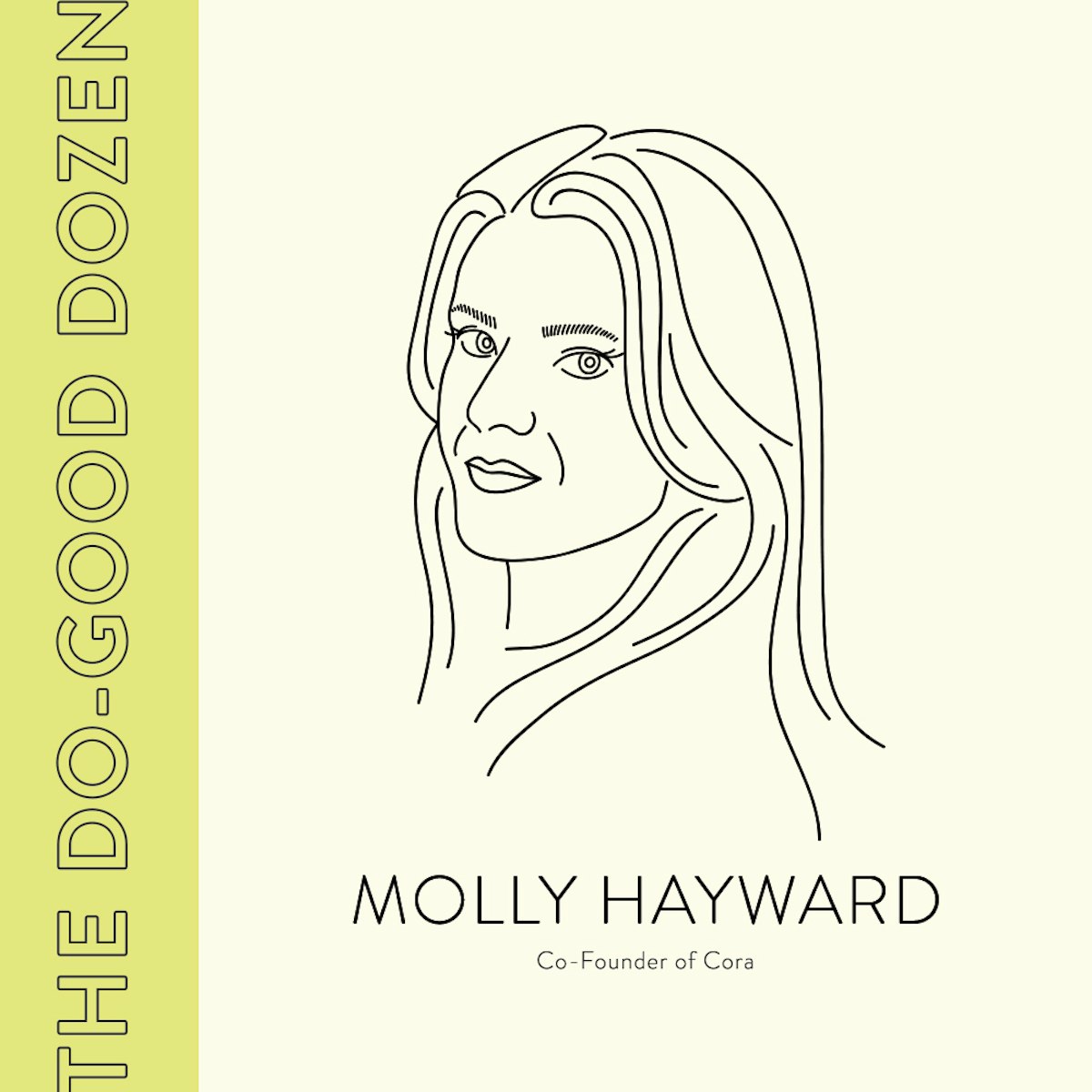You may sometimes (okay, all the time) hear us at Yellow talk about a “do-good brand”. To explain, a “do-good” brand values the way their product or company impacts the world and those within it. To be more specific, a brand that weaves in values such as giving back, ethical pay and environment for the workers, eco-friendly materials and practices, clean ingredients, and overall well-being of the consumer and company into their business model. It’s so important that we realize how our small purchases and daily choices can create waves of good. Our Do-Good Dozen Winner this month, Molly Hayward, co-founder of Cora, embodies not just one, but all of our values as she empowers women everywhere with her social impact brand of organic and sustainable menstrual products. Molly looks out for every woman who is involved, from the women making the products to the girls and women using them. Read on to hear how Molly redefines what it means to be a woman in business, how to align your values, and how she’s challenging us to have honest conversations about womanhood on Cora’s online platform, Blood + Milk.
Tell us a little bit about what you were doing before Cora and what led you to start it.
I’ve spent my career in startups – from a socially responsible e-commerce company I joined right out of college to then starting a sustainable clothing brand in the UK. Everything I did in college and my early career was focused on economic development and social impact through business, so when I found myself traveling as a volunteer in Kenya and learned that girls there often stayed home during their periods, I knew I wanted to create a brand that could represent the modern, conscious woman, while helping to provide period products and education to girls in need around the world.
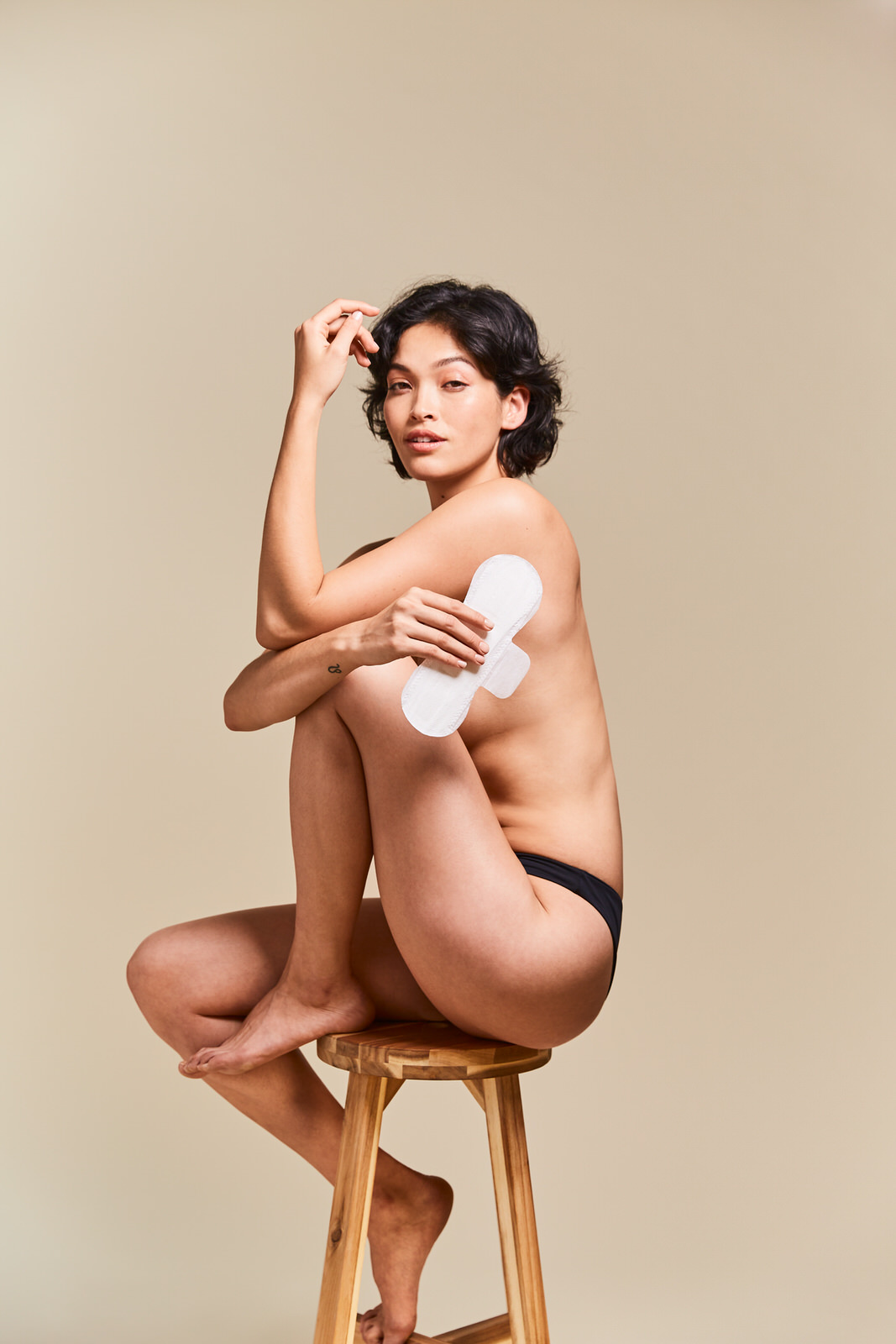
What is the meaning behind the name “Cora”?
With a name rooted in history, Cora embodies the timelessness of feminine power. In mythology, Cora experienced tremendous hardships, but survived to represent a universal concept: the cycle; life/death/life. She symbolizes strength, nature, and primal power; attributes innate to women everywhere.
Today, our company Cora seeks to support women in remembering and reclaiming their inherent power through a deeper reverence and understanding of their bodies.
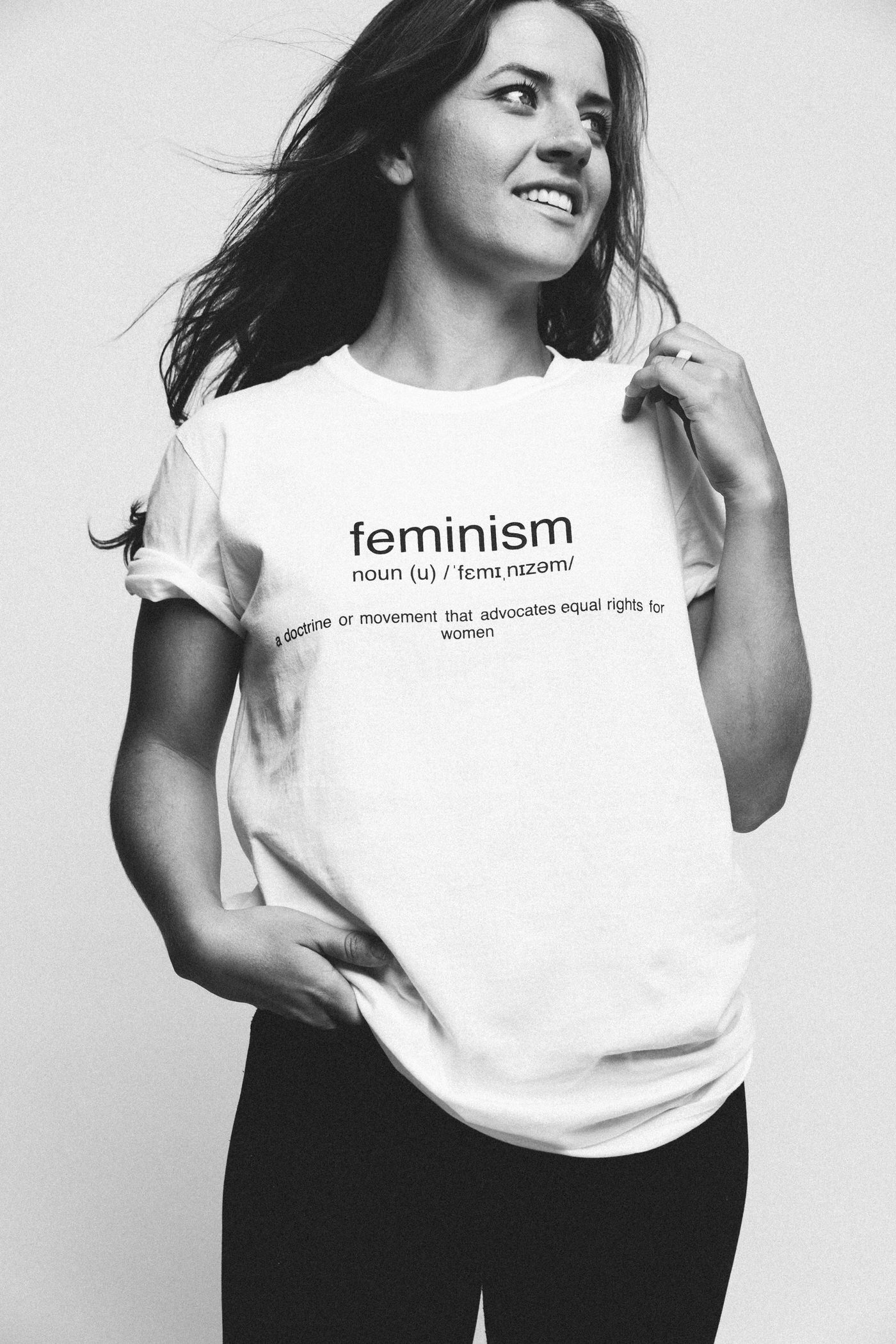
Tell us about how Cora gives back, going beyond a one-for-one model to empower women’s lives and education.
Millions of girls lack access to adequate menstrual products around the world. For every month’s supply of Cora sold, we give a month’s supply of sustainable pads to a girl in a developing country. We do this by partnering with an organization in India that supports adolescent girls’ education and produces an innovative, plant-based, biodegradable brand of high-quality sanitary pads. Produced in small women-owned and operated mini-factories, the organizations create jobs for women and a sustainable, affordable, local source of biodegradable pads for the women of the community.
We believe that every woman on the planet should have access to safe and effective ways to manage their periods. In rural India, one in four adolescent girls, ages 12 to 18 years old, drop out of school after they begin menstruating because they do not have access to proper feminine care products. Those who stay in school are often absent about five days each month.
When girls are given access to proper feminine care products, the dropout rate goes down by 90%.
We recently profiled a girl in India named Ankita who has benefited from the pads we give. She talks about feeling confident, going to school, seeing her friends, and having the opportunity now to get a job after she graduates.
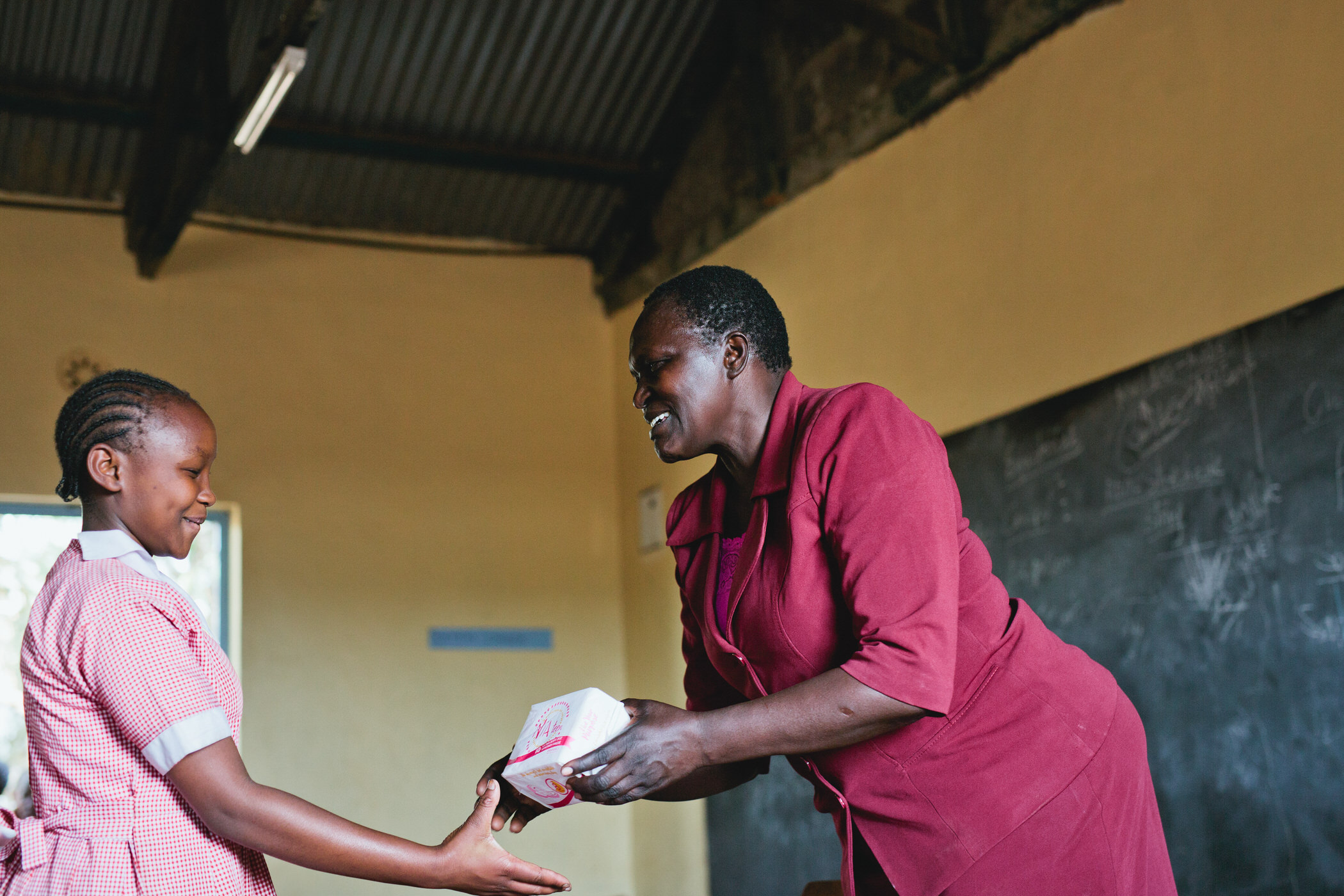
How would you suggest a brand without a large budget go about incorporating their values (organic, fair-trade, give-back, etc.) into their business model?
I don’t believe you have to start with a huge budget in order to infuse you values in your business. You can start by simply infusing them into your brand ethos, your personal working philosophy, or the way you make/deliver your product or service (for example: only utilizing fair trade, or domestic manufacturing, or by promoting a good cause and raising awareness with in-kind marketing even if you can’t yet contribute money). Then when you start to gain traction, you can begin to layer in more tangible contributions.
How did you choose the organizations you partner with from your supply chain to the impactful foundations you work with?
I looked for organizations that were focused specifically on the issue of menstrual health, and identified those who were also integrating long-term education and empowerment initiatives, as opposed to just giving products.
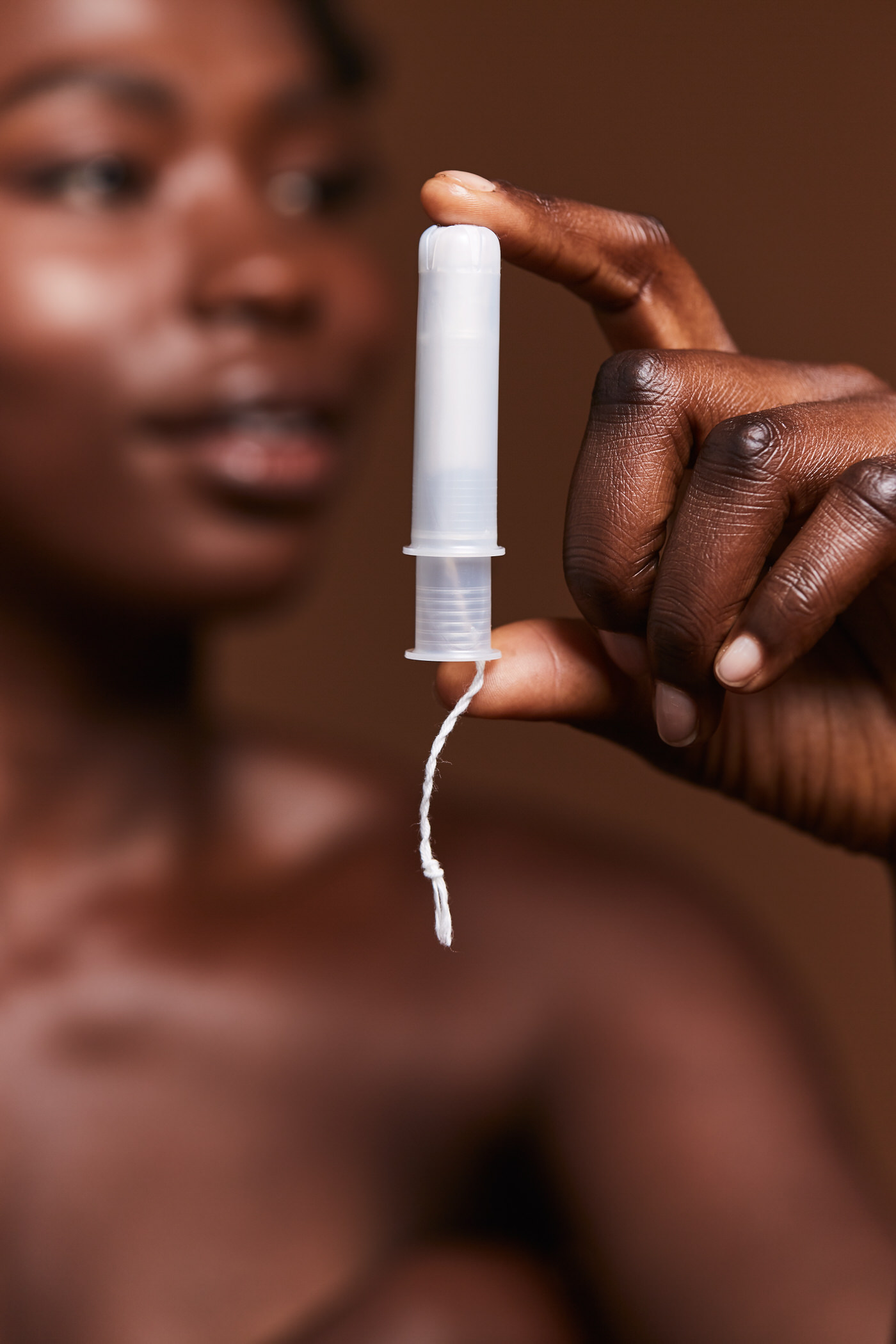
What is a societal or cultural norm you’ve had to redefine for yourself?
I’ve stopped trying to look and sound like/act like the traditional woman in business. I wear what I want, I talk about what I want, and I don’t try to follow some antiquated script or meet a certain expectation.
If I have a meeting with a big global financial firm and I’m wearing a linen jumpsuit, Frye boots, and feathers in my hair that day, that’s what I’m wearing to the meeting.
Congrats on your recent round of funding! What made you go the investment route, and what is one thing you wish you knew before going into it?
Thank you! Given the massive shift that’s happening in the category of organic and natural personal care, seeking outside investment was a way to accelerate our growth and has allowed us to secure our position as the top brand in the space. I wish I’d have known how few women would be sitting across the table from me in those meetings. Thankfully, both male and female investors have seen the value in Cora, but it still surprises me when I end up in a room full of men.
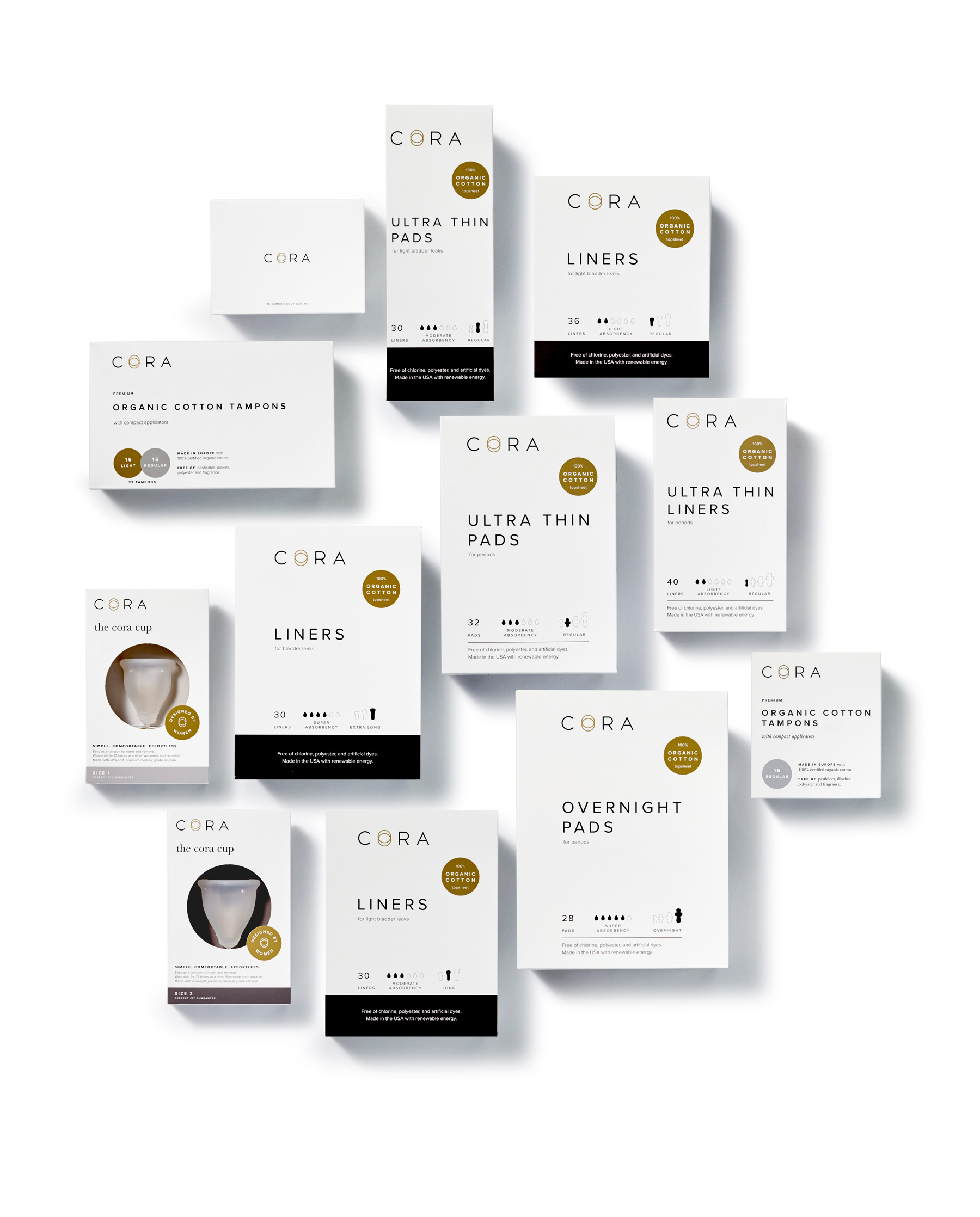
You spearheaded the movement and reinvention of feminine hygiene products that not only help our bodies and the planet, but also gives back to others. How do you stay focused and confident in your mission when competitors are popping up left and right?
Honestly, we don’t worry much about competitors. What we consistently see are brands showing up with the same old generic organic products that are no different from what was on shelf 10 years ago. We’ve never been interested in that. We’re a team with extensive experience in physical products, and we know how important healthy and innovative products truly are to women today, and that’s what makes Cora stand out from the crowd.
What do you feel has been essential in your company’s growth, success, and impact?
Having a team of executors who are all deeply passionate about the work we do at Cora. We’ve done so much in the last three years and it’s because we have assembled a team of rockstars who hustle everyday to grow our business. Hands down, it always comes down to having the right people in the room.
What was a time in your life that you considered a “low point”, but later realized it taught you something and shaped who you are?
Certainly coming out of the first company I co-founded. I had hustled hard for two years, but because I found I wasn’t naturally passionate about the industry, and that it was going to take a really long time before seeing meaningful social impact in that business, I decided to move on. I was truly heartbroken and had no idea what I was going to do next. But of course, lo and behold, it was because I had just left that company that a friend invited me to travel to Kenya, and that was when I learned about this issue of menstrual inequality, and the idea for Cora was born.
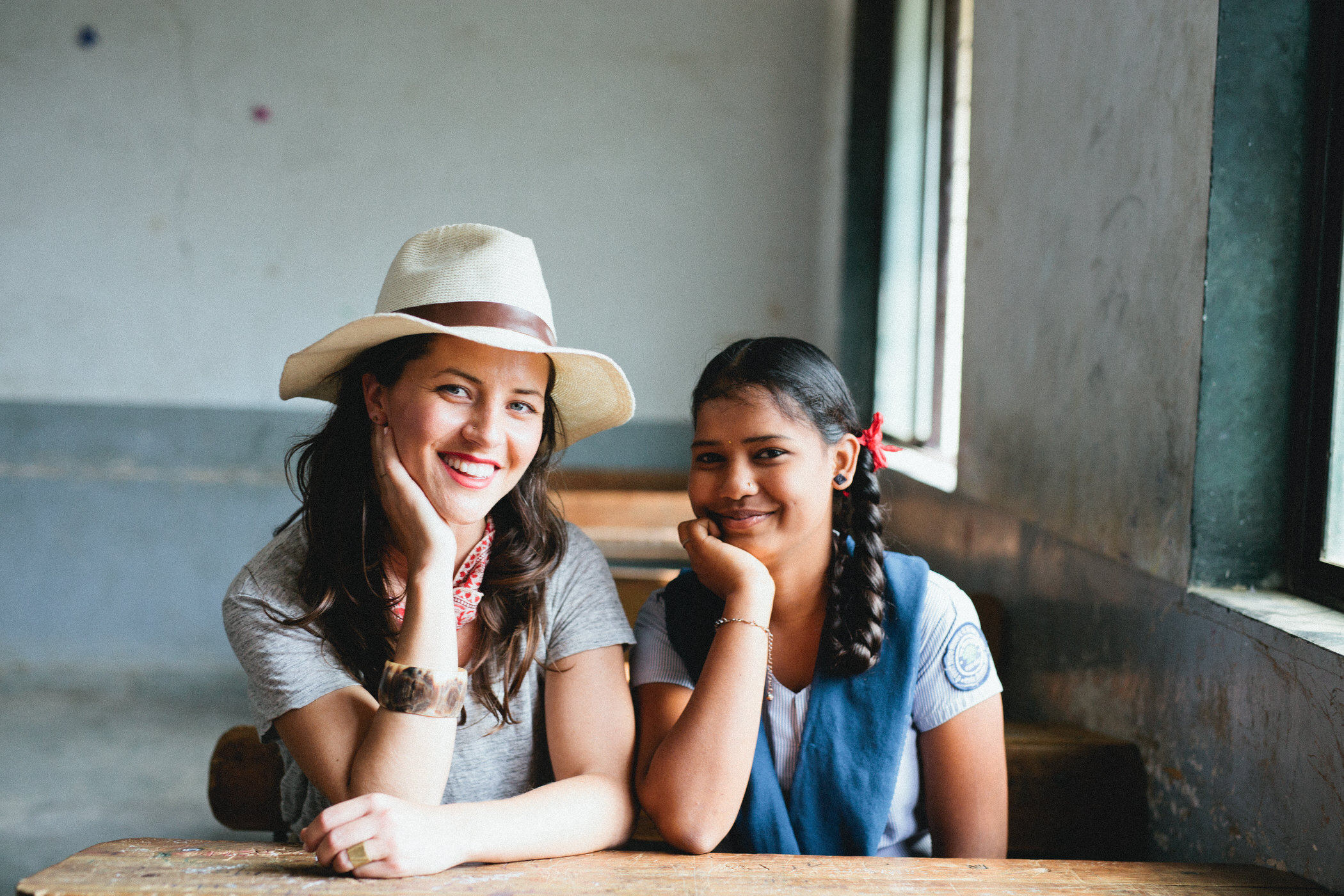
We’re big fans of your online platform Blood + Milk, where you’re destigmatizing, and pushing boundaries around sharing the female experience. What other women or companies currently inspire and inform you?
While I haven’t yet gone through the process of giving birth myself yet, I’ve been so inspired recently in getting to know the founders and work being done at Carriage House Birth in Brooklyn. They are reframing the pregnancy, birth, and motherhood experience, and providing doula services to guide expectant mothers through that experience in a really beautiful way.
What is something we can do today to help change the conversation around womanhood and make an impact for good?
I am a firm believer that if you want to change the world, you first have to change yourself.
Instead of recommending lofty things women can or should do to change the conversation and make global impact, I would tell women to simply start to become more conscious of their own bodies –
and the conversations they’re having in their own minds about the way they look, they way they feel, and the attitudes they have about their bodies and those of other women. Change starts with the self, always.
Illustration by Hanna Snyder for Yellow Co., Photos courtesy of Cora
